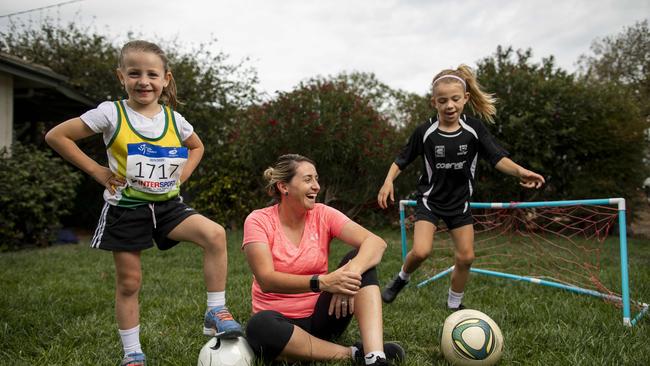Experts say pointless kids’ footy is exactly that... pointless
With the banning of scoreboards, sports experts are worried that children are no longer being taught how to handle losing.

The junior football season is just around the corner, but with the banning of scoreboards, sports experts are worried that children are no longer being taught how to handle losing on and off the field.
In the entry-level versions of Australian rules, rugby league, soccer and rugby union, there are no finals, no ladder and no scores.
Premiership-winning coaches and psychologists alike believe the result of this edict is that children won’t learn to build resilience or experience adversity.
AFL great Kevin Sheedy says not keeping score in children’s sport is robbing them of that essential life lesson — how to deal with disappointment.
“It can make you stronger for those more difficult times off the field,” says Sheedy, who was involved in eight premierships in his impressive career.
“Losing in sport teaches people to handle the loss of relationships, health issues or a job. It’s good to understand how to lose, and sometimes your disappointments become your strengths.”
Former Matilda and W-League coach Heather Garriock, a mother of three, believes organisers should bring the scoreboard back to junior sport.
“Fun is the most important thing, but I also think they need to learn from a young age that in life there are winners and losers,” Garriock says. “In junior soccer there’s no ladder and there’s no competition but after the game, the first thing the children do is talk about the score, because they know if they have won or lost.
“When my kids do Little Athletics they are timed to the millisecond and their results are up on the website every single Sunday. I think that is great. That gives you an idea of where you are at.
“If you know where you are at, then you can strive to be better. It gives you a benchmark.
“The kids are assessed at school as well. We get school reports saying they got an ‘A, B or C’. What’s the difference in sport?”
Auskick, the AFL’s development program for ages five to 12, doesn’t record the scores, have ladders or finals, instead saying its focus is on “developing motor skills and building confidence”.
MiniRoos, the junior soccer program for ages four to 11, is the same. Most junior versions of rugby league don’t record scores, have finals or ladders. And junior rugby union doesn’t have scores until age 10.
Leading child and adolescent psychologist Michael Carr-Gregg doesn’t agree with the major sporting codes’ handling of the junior formats of their games.
“What these codes have done with this edict — we are going to make sure these kids don’t feel sadness and disappointment,” he says. “It’s not just not scoring, they don’t keep ladders, there are no finals, this is the wussification of an entire generation of children.”
But speak to those running the junior development programs in the major codes, and they claim “no finals” is essential for a sporting environment that children can thrive in.
NRL’s head of football, Luke Ellis, says removing the premiership points is a plus. “The common misconception is that no recorded scores or ladders means a non-competitive environment. This is not the case,” he says.
“Delaying the introduction of premierships is a mechanism for removing the detrimental ‘win at all costs’ attitude.”




To join the conversation, please log in. Don't have an account? Register
Join the conversation, you are commenting as Logout